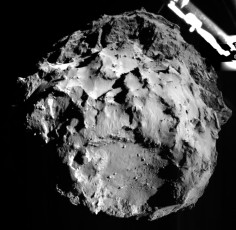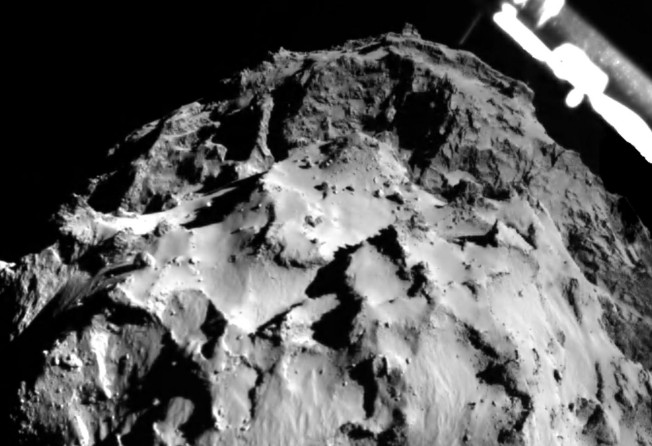
Communication line to comet lander Philae reopened

Major earthquake likely in California
The risk of a major earthquake hitting California in the next 30 years has risen dramatically, US scientists said, using improved forecasting techniques. Earthquakes are notoriously hard to predict and while seismic activity in California has stayed mild in the last century, experts expect a big one to strike some time in the future - they just don't know when. "The likelihood that California will experience a magnitude 8 or larger earthquake in the next 30 years has increased from about 4.7 per cent ... to about 7.0 per cent," said the US Geological Survey. AFP
Polish firm develops miniature drones
A Polish firm that has developed new technologies for the military has devised a system of miniature drones capable of operating from vehicles for surveillance and even directly supporting infantry units. WB Electronics, which already manufactures surveillance and target acquisition systems for the Polish army, teamed up with another firm, Optimum, to develop drones with camera systems capable of attacking small targets with explosive charges. The system, called "Bee", can be configured to fit a number of the small-sized drones on to a military vehicle, such as the Rosomak (Polish for "Wolverine") armoured personnel carriers. The range of the drones controlled from a tablet-sized interface is about 2km with a flight time of 30 minutes. One design, which WB Electronics says is unique to its system, is a camera head capable of thermal vision and laser target designation this weighs just 300 grams. The system is designed to offer support to infantry operating in an urban environment. Reuters
Communication line open to lab on comet
